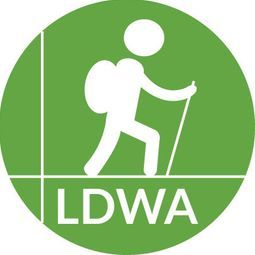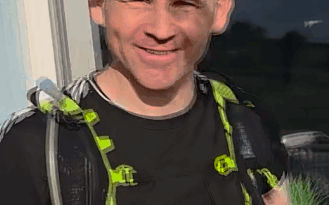LDWA 100 – Q & As with Ken Falconer
This page is all part of my effort to walk the 2021 LDWA 100.
This is part of my little series in asking those who have completed the 100 just how they did it, and whether it’s an entirely good idea. Adam Dawson wasn’t perhaps sure after his one and only completion, but Ken Falconer, a stalwart of the LDWA, certainly is given the number of 100s that he has completed. As Ken notes below, he’s completed 34 of these events, which makes him just about the most qualified person to ask about the 100s.
Everyone walks these events differently, but the thought of not having the GPX to rely on frightens me just a little, but Ken has coped perfectly well without it. Assuming that next year’s event goes ahead, Ken is doing the marshals’ version of the walk, which is the same one that Nathan and I are completing. I suspect Ken will be quite a bit faster than us, although I also think that everyone else will be quite a bit faster than us so this isn’t really saying much.
There are a few questions I didn’t ask Ken, but this is because he’s put together a marvellous post together about how to walk the 100, which is at https://www.ldwa.org.uk/library/hundredsurvival/hundredsurvival.php, which is essential reading for all potential entrants.
Q. When was your first 100?
Snowdonia 100, 1983
Q. When you finished your first 100, did you think you’d do another?
Not for the week after finishing my first, but after that I never looked back.
Q. How many 100s have you now completed?
34, of which 21 were Marshals’ 100s
Q. What would you pick at a checkpoint, two sausage rolls, one chicken bake or one steak bake?
Probably the chicken bake.
Q. Is there any part of the UK where you haven’t walked a 100 but would like to?
The 100s I have done have provided a pretty good geographical coverage of the nicest walking parts of the UK.
Q. How important are the marshals to you at checkpoints on longer challenge events?
Very important – their care and encouragement really spurs one on.
Q. Are there moments that you’ve nearly retired from a walk only to then finish? How do you get that mental strength?
No. But there was one 100 (the 2017 North York Moors) when I should not have retired at 80 miles and have regretted it ever since. I ignored my own advice that I should rest for a time and then seen how I felt. As soon as I got back to HQ I was walking again without difficulty.
Q. Have you had a walk where it has rained nearly constantly? How did you deal with that practically and mentally?
The one that I remember as particularly wet was the 1985 Yorkshire Dales 100 – I don’t think that it stopped raining much at all and it was also windy. The 1983 Snowdonia was also rather wet. Apart from these it has rarely rained for more than about 12 hours in all. At the other extreme I suffered considerably from heat on the 1992 Invicta and the 2018 Cinque Ports.
Q. Have you hallucinated towards the end of a walk?
No, though I know several people who have. It’s usually on the second night that walkers start to hallucinate – and I have never gone into the second night, though I can see this coming in the future!
Q. Are you more reliant on the route description or the GPX file?
I’ve never used GPX files. I carry a map case to display the route description on one side and the 1:25,000 OS map on the other.
Q. Do many people have a thirty-minute or so sleep at checkpoints? Do you recommend that?
I know that some people lie down for a while – if people feel they need it they should do so. I would not personally try sleeping unless I was in fairly bad shape.
Q. Have you been scared of a sheep / cow / snake / pig / seagull or similar on a challenge walk?
On the 2013 Camel-Teign I (and others) were attacked walking through a farmyard by an aggressive turkey! On another 100 I had to move slowly through a herd of cows that were blocking the exit gate to a field.
Q. How long do you take physically, and mentally, to recover after completing the 100?
I’m usually a bit stiff for a day or two, but no blisters since my first 100 when I wore heavy boots. My mind ceases to be fogged after a good night’s sleep.
Q. To those people who are thinking about taking part in their first challenge event, maybe just 18 miles, what advice would you give them?
Think of the walk in stages, keep in mind that it’s just 3 miles to the next checkpoint and not that it’s 14 miles to the end. Above all enjoy it: the views, the wildlife, the company, the checkpoints – and the satisfaction of finishing.





